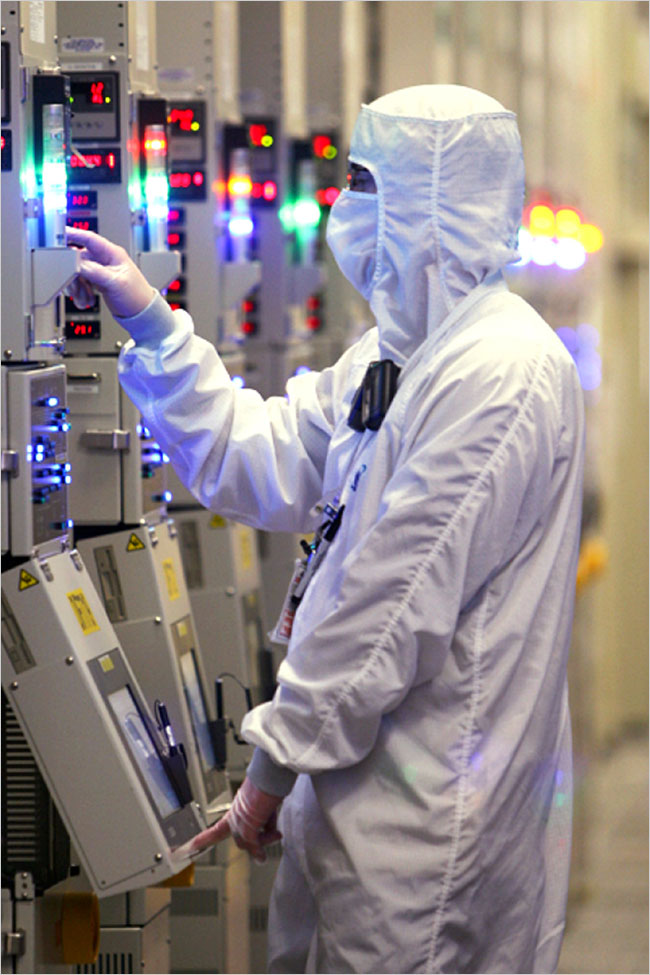Virginia in the 20th century has not only played host to dramatic national debates over equality, but also seen significant change in economic and technological sectors. Over the past 20 years, technology developments revolutionized Virginia’s economy. The Internet, communications, and software engineering firms have developed in northern Virginia. In 2006, the computer chip became the state’s highest-grossing export ($1.5 billion), outpacing traditional exports of coal and tobacco. Two companies, Micron and Qimonda AG, produce all of the microchips shipped from Virginia.
The type of high-tech work pictured here, showing an employee at Micron’s Manassas, VA, chip plant, has come to represent much of Virginia’s 21st-century economy. The Southwest corridor of Virginia has attracted businesses involved in Internet technologies and energy alternatives. Developments in transportation and technology have allowed Virginia to play an active role in the world economy. The growth of communications technology, particularly in northern Virginia, opened new economic and business opportunities.
The growth of the federal government has also contributed greatly to the economy of Virginia. The Department of Defense, the Central Intelligence Agency, and numerous other federal agencies are headquartered in northern Virginia, and employ thousands of workers. The Hampton Roads area represents the largest concentration of military bases and facilities – including all branches of the Armed Services – of any metropolitan area in the world.
Source: Brooke Crothers, “Despite Turmoil in the Chip Industry, Signs of Hope for Micron Technology,” The New York Times, July 6, 2009, sec. Technology / Business Computing, accessed September 20, 2011.













